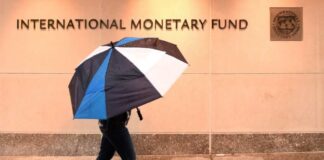The American Rescue Plan Act of 2021, signed into law by President Joe Biden on March 11, 2021, was a comprehensive legislative package addressing the “economic and health impacts of the COVID-19 pandemic” in the United States. The act included various provisions spanning different areas.
Some made sense, like COVID-prevention measures. Others were a stretch of many Americans’ patience, such as renters not having to pay their outstanding rent to struggling building owners and the endless expansion of unemployment benefits. Still others were wildly misrepresented by the White House, such as the often-repeated claim that a few direct payments of $1400 each “lifted millions of Americans out of poverty.”
It’s important to remember that the American Rescue Plan Act of 2021 was a response to the specific circumstances of the COVID-19 pandemic, and its provisions were supposed to be temporary.
But, as Democrats love to do with any bill, the legislation contained more pork than Smithfield Foods. Only an estimated 9% of the nearly 600-page bill had anything to do with COVID. Around $1 trillion quietly went to liberal pet projects, including $1.5 million for the Great Lakes St. Lawrence Seaway development, $270 million for the National Endowment for the Arts and National Endowment for the Humanities, $7.6 billion for improved internet access, $1 billion for loan assistance to “socially disadvantaged” (Black and Hispanic) farmers, and billions of dollars for “government manpower and oversight.”
But what caught America’s attention was the IRS’ pledge to come after Venmo, eBay, and PayPal payments totaling just $600 annually. Not per transaction – per year.
Some states already have a tight grip on third-party payment apps. Virginia, Massachusetts, Vermont, Maryland, and Mississippi have the threshold set at $600. The IRS eagerly anticipated making this threshold across the board for an estimated $8 billion in additional tax revenue over the next decade.
Before this legislation, only those who received over $20,000 and had 200 transactions were required to file a 1099-K. As expected, Americans were less than thrilled to face a threshold of less than a thousand dollars.
It was an idea that was not well-received by taxpayers.
In December of 2022, the IRS delayed the implementation of its latest money-grabbing scheme, citing concerns over the timeline. In addition, the agency wanted to ensure that only those who qualified for the 1099-K would receive one, and they wanted to give tax professionals and online tax preparation software time to prepare.
But the delay allowed taxpayers an additional year to forget that Biden’s IRS passed the law. It was to be reinstated for tax year 2023, quietly and with little fanfare.
Earlier this week, the IRS announced it would again delay the rule for tax year 2023 following negative feedback from taxpayers, tax experts, and payment processors. According to the IRS, about 44 million 1099-K forms would have been sent to many taxpayers this year, even though they might not have owed taxes on those payments.
The IRS has passed a new provision to the $600 regulations, and for the tax year 2024, the casual side hustler can breathe easier. The IRS announced its threshold would be increased to $5000.
But it’s only a short break. The dreaded $600 rule goes into effect for tax year 2025.
The IRS will use this second delay to clarify precisely what is taxable and what is not. While transactions between friends and family are not taxable, selling used items on eBay would “trigger” a 1099-K despite a lack of tax obligation.
Even though talk of the new tax law has been buried under more pressing concerns, make no mistake. The IRS still wants your $600, and by golly, it will have it.

















